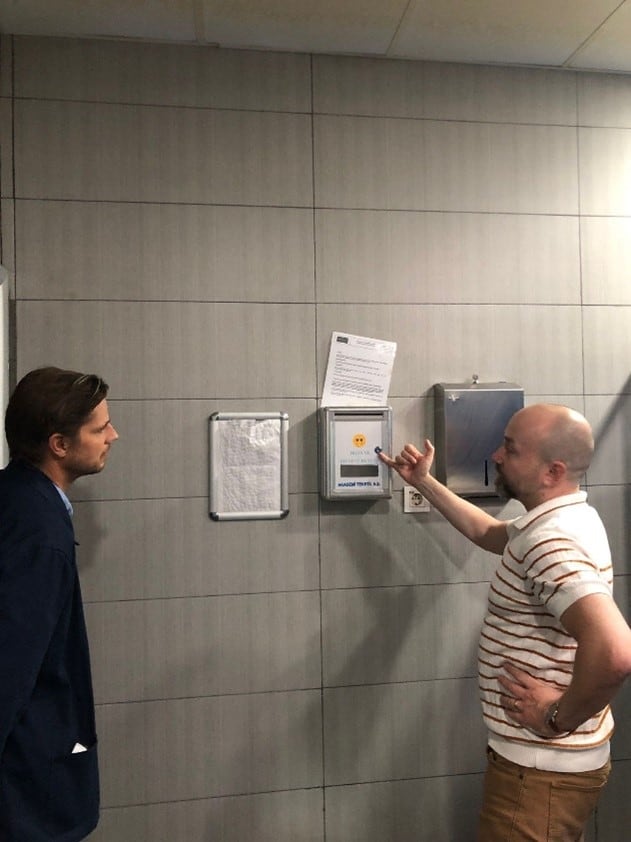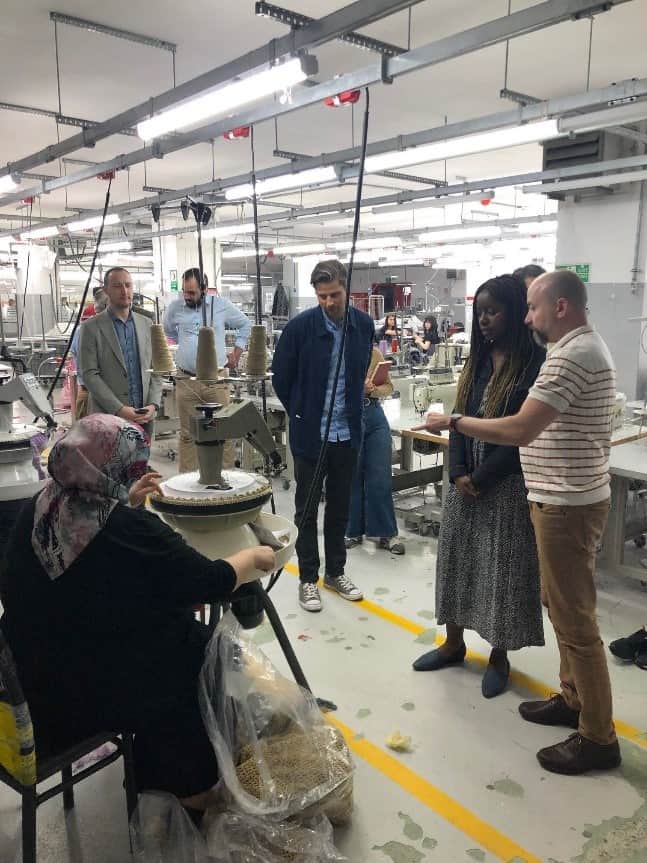Supporting Syrian Workers in the Turkish Garment Industry
Supporting Syrian Workers in the Turkish Garment Industry
Orsay*, Primark and C&A have been working with MUDEM for some time and use theNGO'sgrievance mechanism with their suppliers in Turkey. In September 2021, the previous funding by the Laudes Foundation expired. With the request to continue the Worker Support Center, the three companies turned to the secretariat of the Textiles Partnership. With success: On behalf of the German Federal Ministrye Economic Cooperation and Development (BMZ), the Textiles Partnership is supporting MUDEM with around €150 000for a total of 1.5 years.
The funding ensures that (Syrian) workers in the textile supply chain continue to have access to remedy and legal support. Together with the Partnership Secretariat, the companies are now working towards the long-term establishment of the Worker Support Center.
Thomas Ahlers, Manager Corporate Responsibility at Primark, says: "MUDEM has been doing enormously important work for years, especially for Syrian refugees who are employed as textile workers in Turkey. We are delighted that we have jointly been able to ensure the continuation of this support. With these efforts, we want to ensure that Syrian workers in Turkey continue to have access to legal support."
In addition to Orsay, Primark and C&A, other European and international brands also cooperate with the Worker Support Center and use the complaints mechanism of the Turkish NGO.
In mid-May, the project partners met in Istanbul to discuss best practices, challenges and a possible project follow-up phase. A special highlight: Coordinated by Orsay, C&A and Primark, several factories could be visited. Together with the factory managers, the opportunities and challenges with regard to the employment of refugees were discussed. Furthermore, the participants exchanged on the cooperation with the Worker Support Center, whose information posters are displayed in the factories.
For example, a family-run embroidery factory that produces for C&A and Primark, among others, employs 26 Syrian refugees, who make up about half of the workforce. During a previous training session, the MUDEM employees informed some of the workers about their rights and the work of the Worker Support Centre. Another training is already planned to educate the entire workforce.
“For us at the Partnership for Sustainable Textiles it is important to promote local civil society organizations that serve as contact points for workers. These organizations act in the interest of workers, know their concerns and challenges. Local proximity and language facilitate access and use of the complaint mechanism. This example shows that cooperation between buying companies and local organizations works and should be further promoted,” says Lara Hutt from the Partnership Secretariat.
*While Orsay had to close down all its shops in Germany as a result of the COVID-19 pandemic, the Fashion Cube (a group of six brands to which Orsay belongs) continues its operations and thus also its cooperation with MUDEM.


Around 2 million Syrians of working age between 19 and 64 live in Turkey. Only 3 per cent of them (around 62,370 people) worked with a work permit in 2020, according to statistics from the Ministry of Labour and Social Affairs.
According to research, an estimated 500,000 to 1,000,000 Syrians are employed in Turkey’s informal sector, making them highly vulnerable to illicit work, unhealthy and inhumane working conditions, discrimination and abuse, being paid under legal minimum wage, working excessive hours, working with no benefits.
The MUDEM – Refugee Support Center was founded in Ankara (Turkey) in 2014 to address problems of vulnerable groups at home and abroad. These include asylum seekert, refugees, immigrants, victims of human trafficking, applicantsforinternational protection and stateless persons. Today, das the MUDEM-RSC works in six cities, including Istanbul, Ankara and Izmir, with over 100 employees and carries out eight projects that provide refugees and asylum seekers with social and legal support in accessing rights and services. One of these projects is the Worker Support Center (WSC),which was founded in 2018. The WSC is a web-based project and offers workers in the textile sector free advice on social and legal problems as well as grievances in the workplace.
How does the WSC work?
The process starts with the workers sharing the complaint with MUDEM via workersupportcenter.org. MUDEM caseworkers call the worker back and discuss how to solve his or her complaint. If the worker works for a supplier of one of the collaborating brands, a workplace improvement plan is prepared with the brand addressing the complaint of the worker.
Most common complaints concern
- Work permit
- Wages
- Other (seeking a job, ID card, child labour, resettlement)
- Workplace abuse
- Ending employment
- Social rights
- Workplace safety



